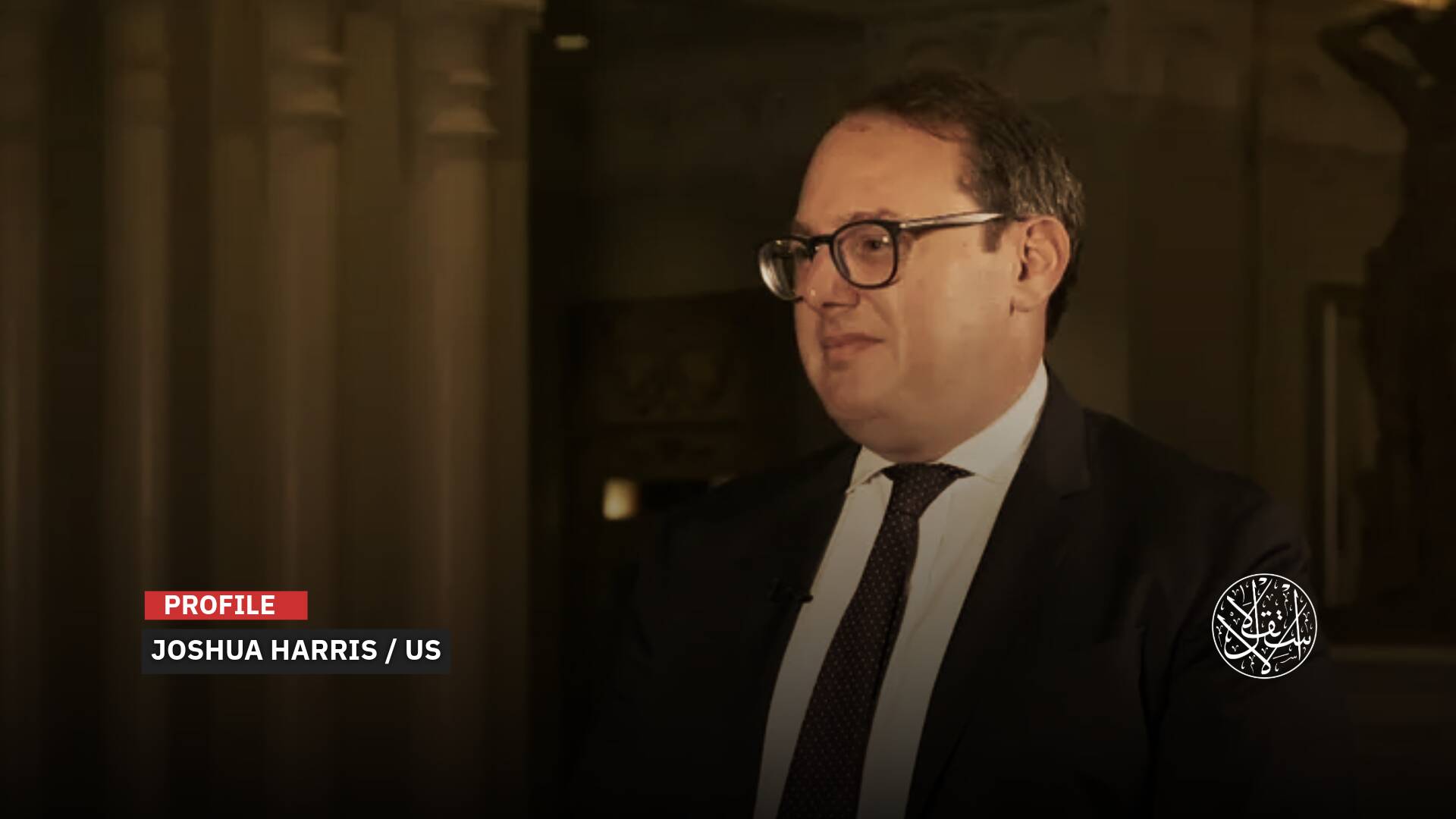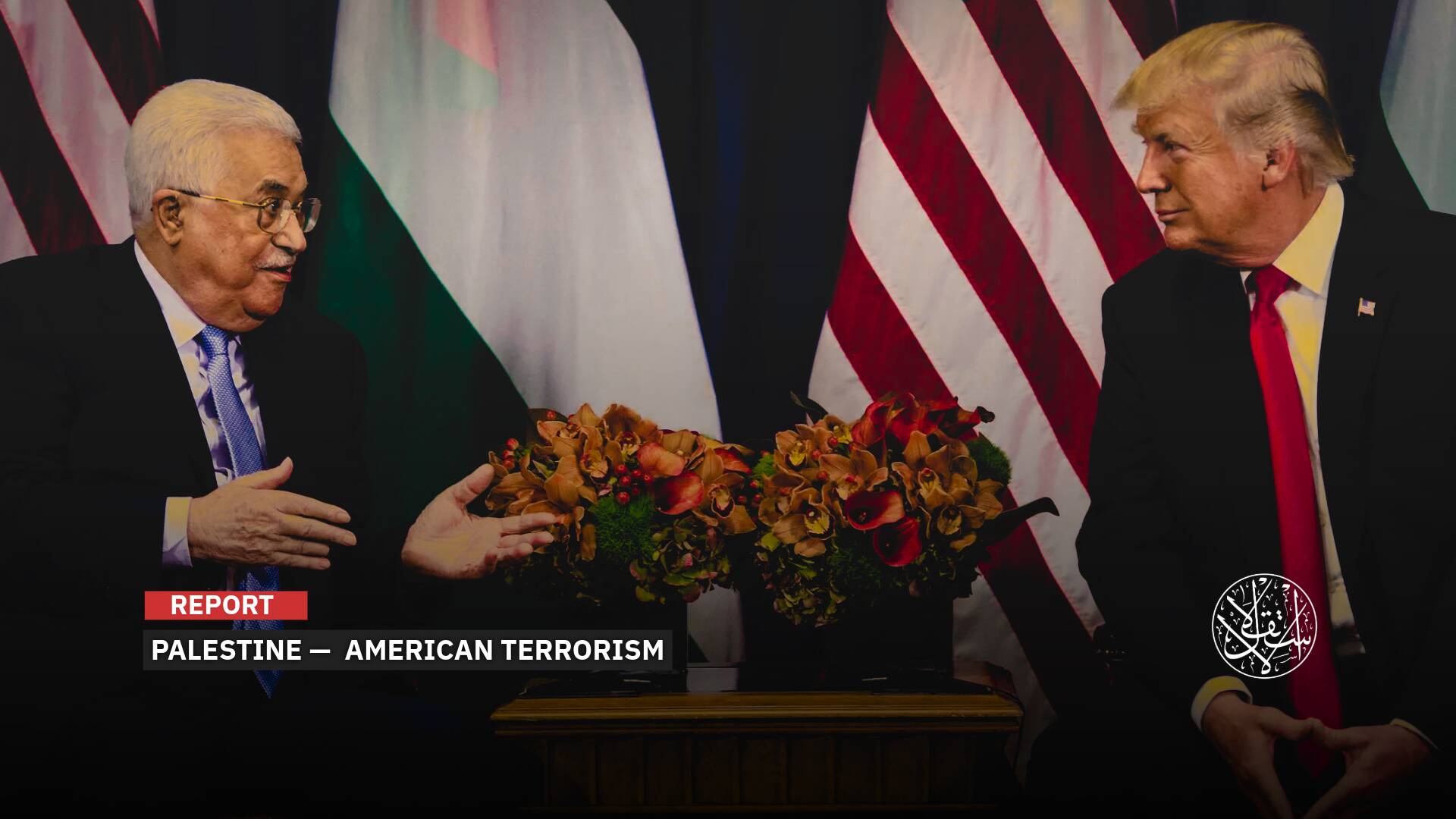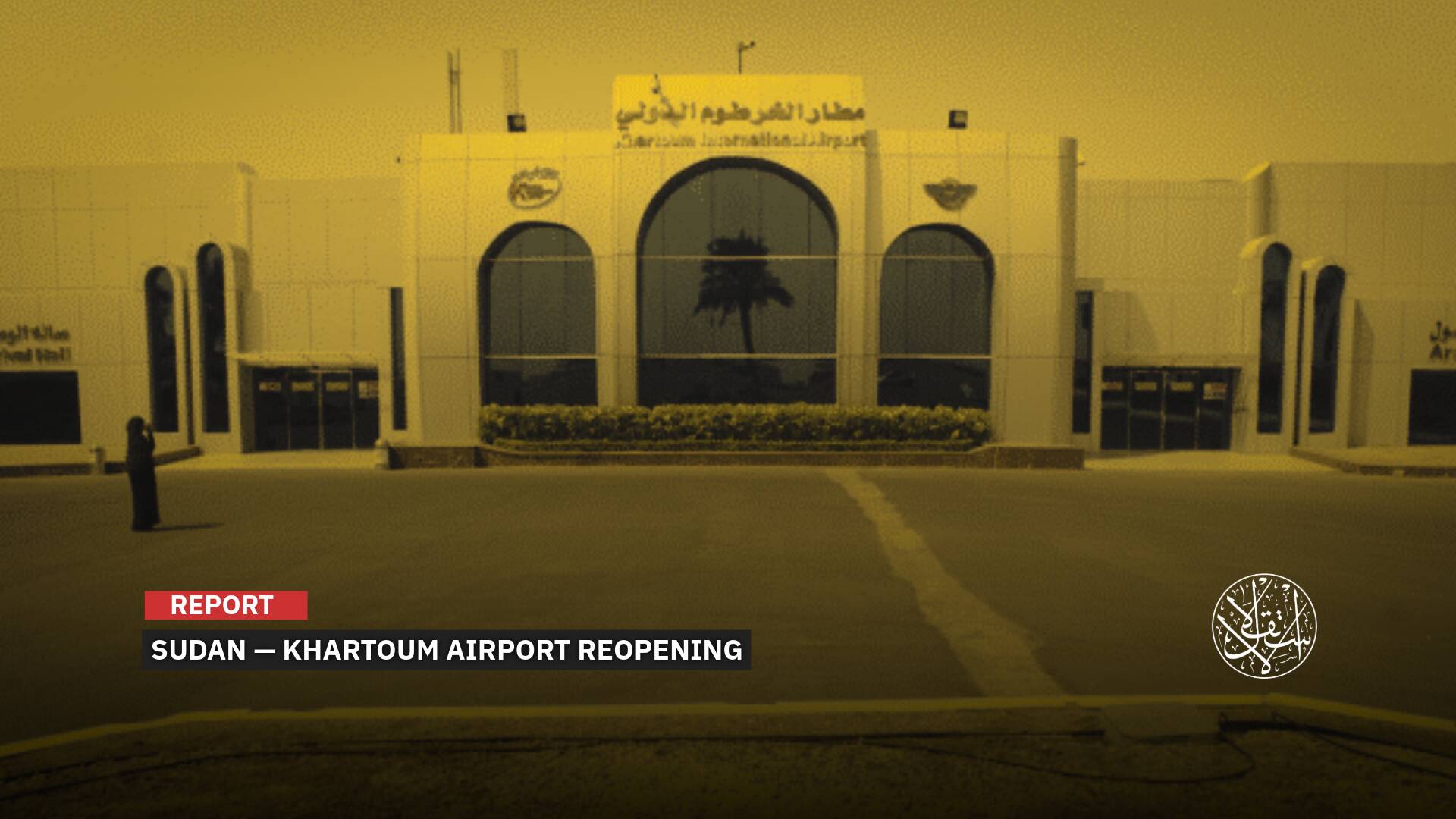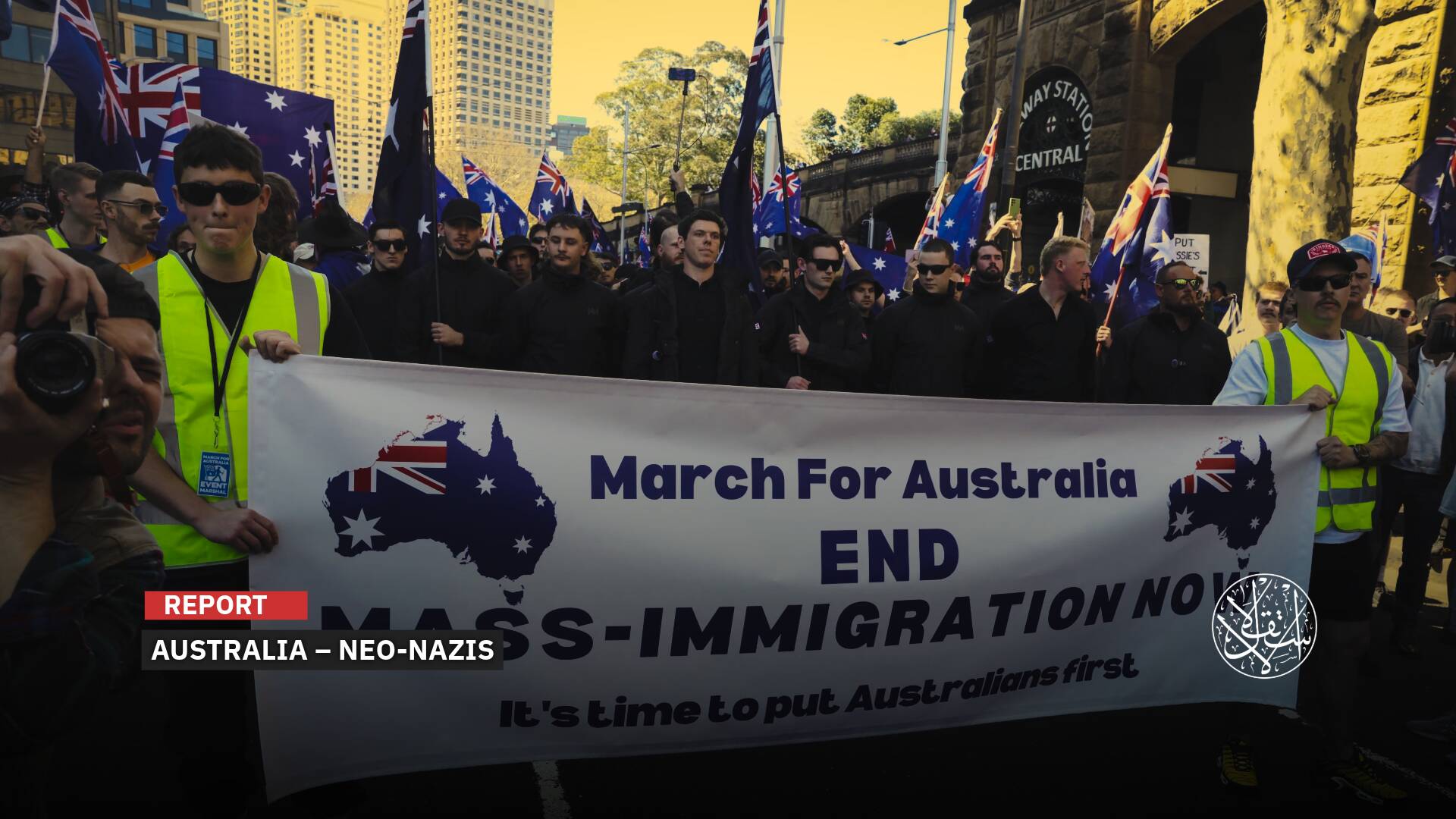Has Germany Realized the Need to Disarm and Combat Far-Right Extremism on Its Soil?
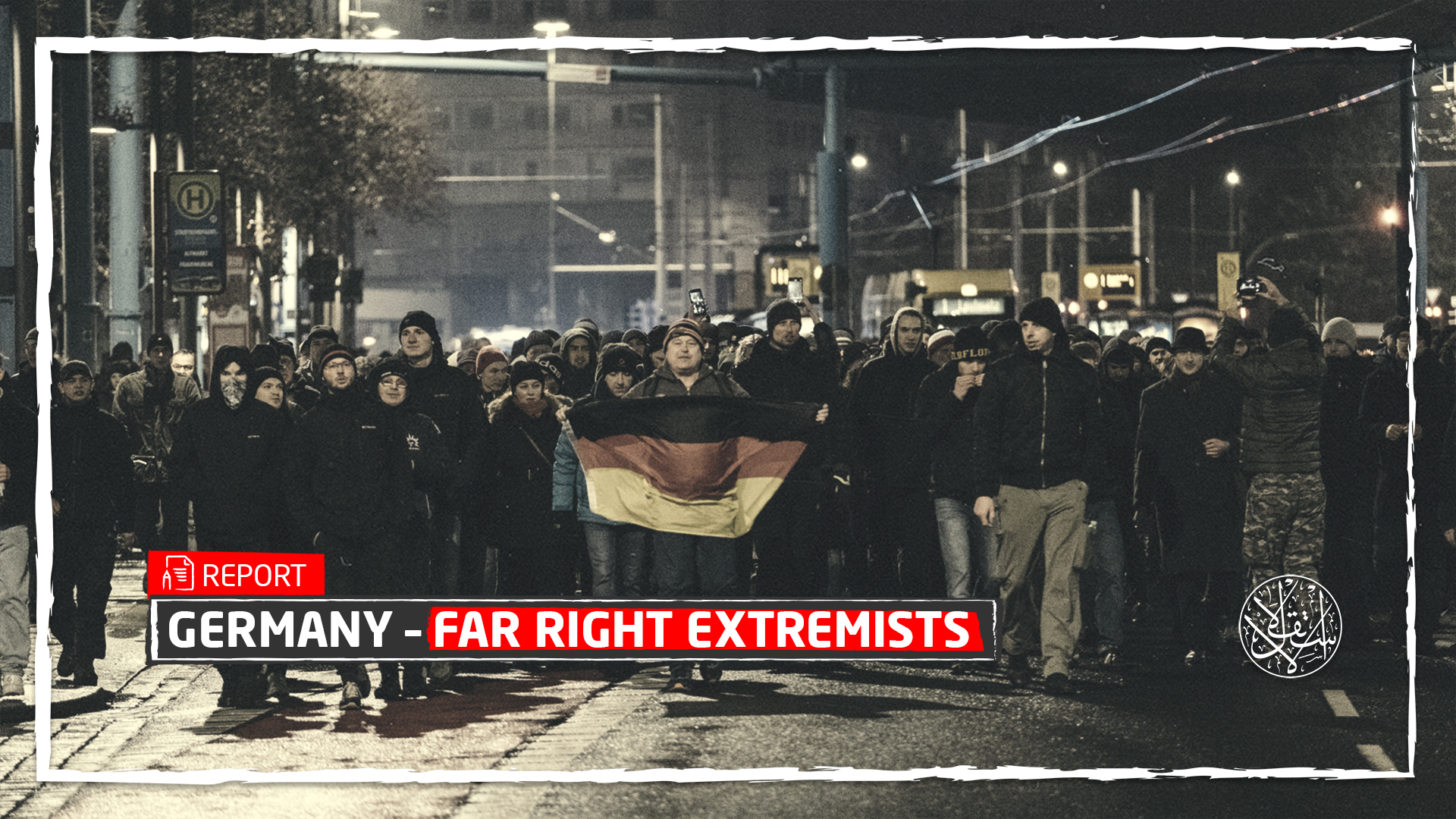
In mid-March 2022, the German Federal Ministry of Interior presented a new plan to combat and disarm far-right extremism and accelerate their exclusion from the public service sector, following the increase in their violence and threat to societal peace.
In another strong blow to the far-right and the crimes of Islamophobia in Europe, the Administrative Court in Cologne, Germany, recently decided to put the Alternative for Germany (AFD) party on the list of suspected cases of far-right extremism.
The new German approach was met with cautious optimism by minority groups in Germany, which were long in the crosshairs of far-right extremism, in addition to the support and approval of many German political and social classes, who described the far-right party as a disgrace to the country.
It is noteworthy that the German far-right has become embarrassing the political and security authorities and poses a threat to German democracy after adopting violent methods of expressing its positions, despite the reform policies drawn up and implemented by Germany in recent years, what portends a turbulent German security and political future if the authorities do not act very strictly with this file.
10-Point Action Plan
On March 15, 2022, German Federal Interior Minister Nancy Faeser revealed comprehensive measures in a 10-point action plan to combat far-right extremism in the country, including confiscating weapons from around 1,500 suspected terrorists and strengthening background checks for those trying to buy weapons, according to the Guardian.
“We seek to smash far-right networks, as well as accelerate the tracing of these networks' structures and effectively combat them, to this end, we will work to expose and dry up the financing activities of the far-right networks,” Faeser said.
“Music festivals, martial arts events, and businesses such as selling clothes are among the important sources of revenue for the far-right extremists,” she pointed out.
“There are about 1,500 far-right extremists who have permits to carry weapons at the present time,” Faeser revealed.
In addition to an amendment to the Federal Discipline Act to exclude far-right extremists from public service faster than they are now, according to the minister's plan.
Chancellor Olaf Scholz's Social Democratic minister plans to create a new forum for faster progress in disarming far-right extremists, cracking down on online incitement through social networks and combating conspiracy theories.
Within the framework of this forum, information will be exchanged between the German Federal Office for the Protection of the Constitution (BfV), arms control authorities, the police and administrative courts in order to advise federal bodies with far-right ranks.
According to the Guardian, Parliament's Defense Commissioner, Eva Hoegl, said: “There were approximately 252 events of far-right extremism within the German military in 2021.”
Thomas Haldenwang, the head of the BfV domestic intelligence agency said that his agency plans to publish a report in the coming months on extremists operating in the government sector.
It is noteworthy that in the wake of numerous far-right terrorist attacks, the government of former Chancellor Angela Merkel adopted in December 2020 an 89-point plan to combat racism and far-right extremism, amid the refusal of federal administrations to fund that plan from the general budget of the country.
According to German reports, 150 million euros have already been allocated in the 2021 budget for anti-racism projects, but the relevant ministers were unable to obtain these funds due to the refusal of the responsible federal departments.
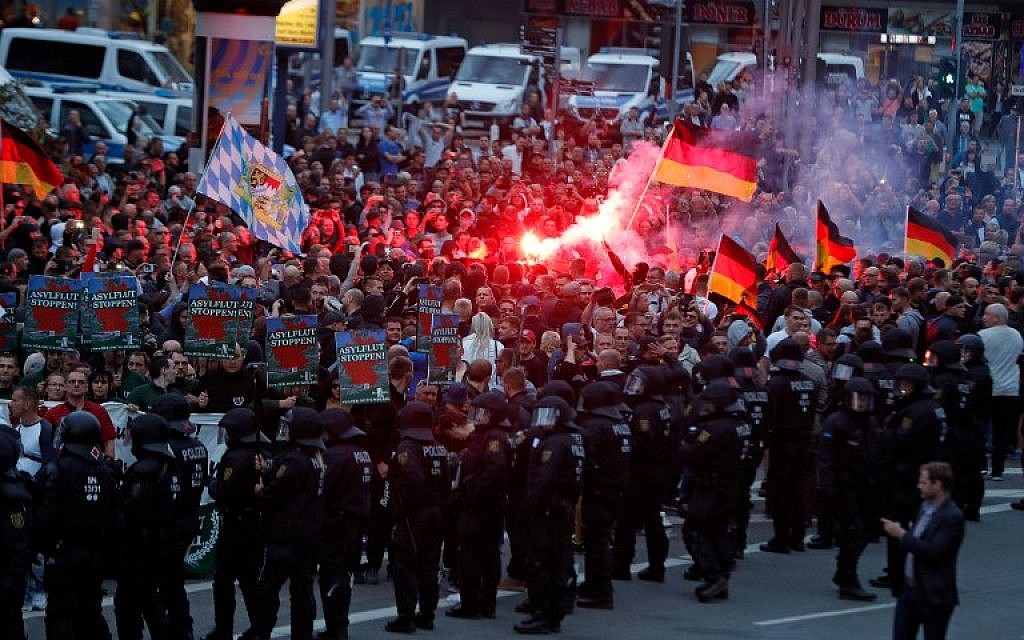
Extremist Ideology
In a related context, the Administrative Court in Cologne, Germany, ruled on March 8, 2022, allowing the BfV to monitor and track all activities and communications of the far-right Alternative for Germany (AFD), including the recruitment of secret agents within its ranks, according to Reuters.
But the party still has the right to appeal the ruling, especially since it had previously submitted a legal challenge that was rejected by the court, which contributed to the delay in the BfV measures aimed at placing the party under surveillance.
The AFD is a far-right party that was founded in 2013, and adopts anti-refugee and anti-Muslim policies. It succeeded in reaching the German parliament in 2017, and poses a great danger to German society because of the extremist ideology that it adopts and implements.
The AFD party had practiced many crimes against Muslims, as in 2018, it called for schools without Islam, what sparked resentment and shock, according to observers, for the reuse of Nazi terms that many thought had been forgotten by German society.
The extremist party infiltrated the German police, and its members discriminated against Muslims and refugees.
Many statements were repeated by party leaders working to discriminate against Muslims and stir up Islamophobia.
Regarding the recent court ruling against the activities of the AFD, German Federal Minister of Justice Marco Buschmann pointed out that “the ruling serves as a signal to citizens to think carefully before voting for this and other parties that contravene Germany's constitutional values.”
The leaders of the AFD party sought to defend it by saying that the party had distanced itself from its most extremist affiliates, and that for this purpose it had dissolved the hardline Der Flugel faction of the party led by Bjoern Hoecke.
But judges at the Cologne Administrative Court said that “prominent figures from this hardline faction still wielded significant influence within the party.”
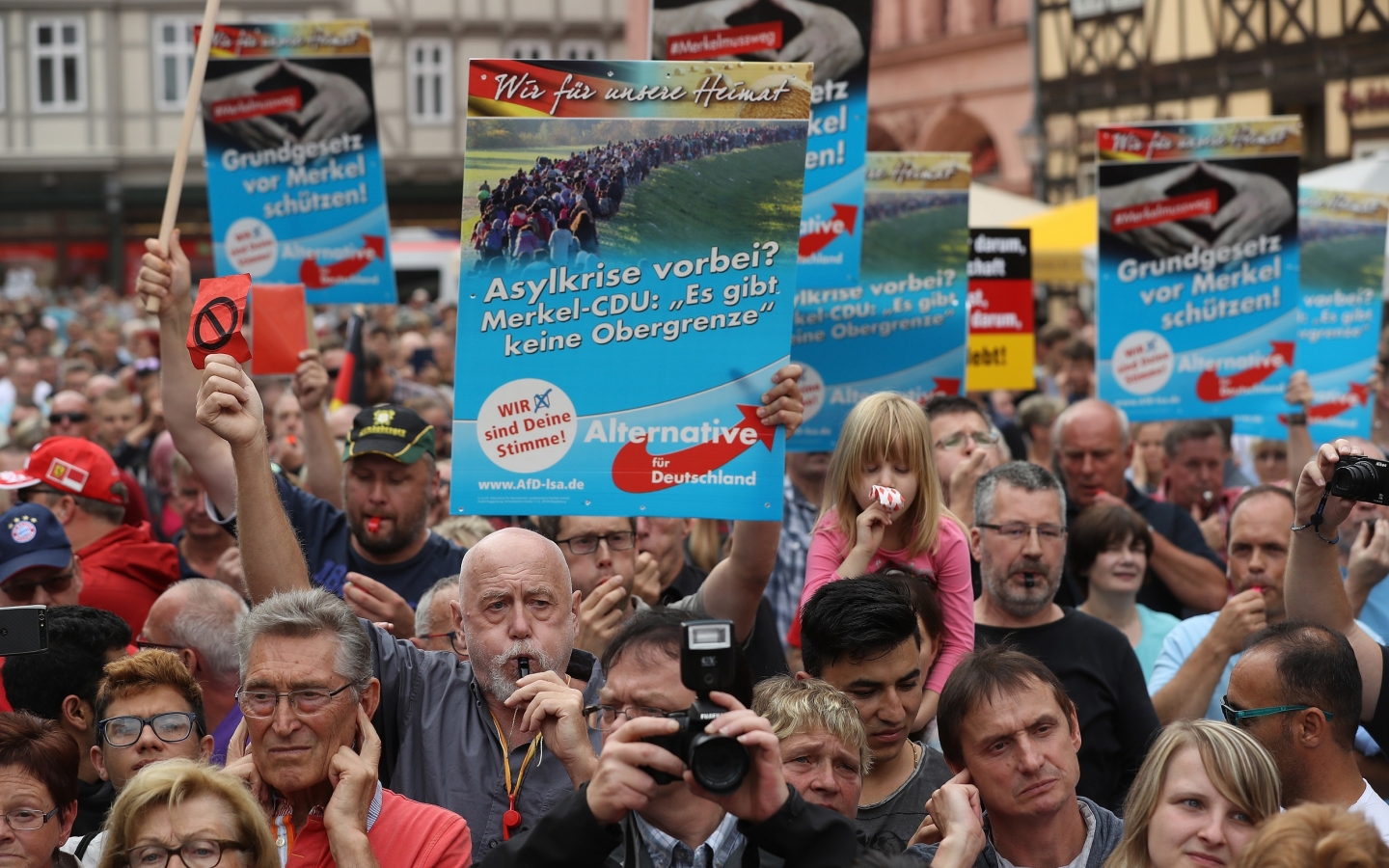
Intimate Political Ties
TRT World revealed in its report on March 04 that there is a link between Russian President Vladimir Putin and far-right extremists in Europe, and fears that Putin will use his influence within the far right to destabilize Europe in response to the position of Germany and the European Union in support of Ukraine.
According to research by Dr. Beatrix Campbell, Professor of International Relations at Leiden University in the Netherlands, “the threat of Russian retaliation to European countries through far-right proxies, particularly via the AFD in Germany, is highly likely.”
Dr. Campbell warns that Putin could use all options available to him, including illegal neo-Nazi groups.
“I wouldn't rule out a violent backlash from the far-right towards minorities in Europe to sow discord and bring instability and insecurity in European societies,” she says.
“There have been intimate political links between many European far-right organizations and Russia in terms of policy coordination, funding, regular meetings, and similarities in opposition to NATO and the European Union,” Dr. Campbell adds.
It is noteworthy that the recent press release issued by the German far-right AFD party is evidence of these close ties; in particular, he blamed Russia's offensive against Ukraine on NATO's eastward expansion, in keeping with Putin's view.

Security Penetration
In recent years, Germany has been facing a significant increase in the number of racist and Islamophobic crimes, which are fueled by the propaganda of extremist far-right groups and parties, and this indicates the expansion of the scope of racist ideology that troubles the German authorities and threatens democratic institutions and societal peace.
Germany, with a population of over 83 million, has the second largest Muslim population in Western Europe after France, with an estimated 4.7 million Muslims.
According to data from the Federal Criminal Office, far-right groups and parties in Germany committed at least 21,514 crimes in 2021, 662 of which were against mosques, Muslims and immigrants.
In 2019, far-right pro-refugee political extremists murdered in Kassel, and in February 2020, a far-right extremist stormed two cafes in Hanau and killed nine people of immigrant origin, what raised the German authorities' concerns about far-right terrorism in the country.
According to estimates by the Amadeo Anthony Foundation, there have been at least 218 innocent victims of far-right violence in Germany since 1990.
It is noteworthy that the German authorities have banned many organizations and groups supporting the far-right because of the crimes they committed, but most of them are still practicing their activities.
Germany seeks to curb the growth of far-right extremism through scientific and social security approaches, at a time when politicians in Berlin assert that the extreme right has become the biggest challenge facing the country, as its danger outweighs the extremist Islamic currents.
Berlin also recently allocated 35 million euros to support scientific research on the topics of racism, xenophobia and anti-Semitism, to besiege them further, which contributes to their weakening.
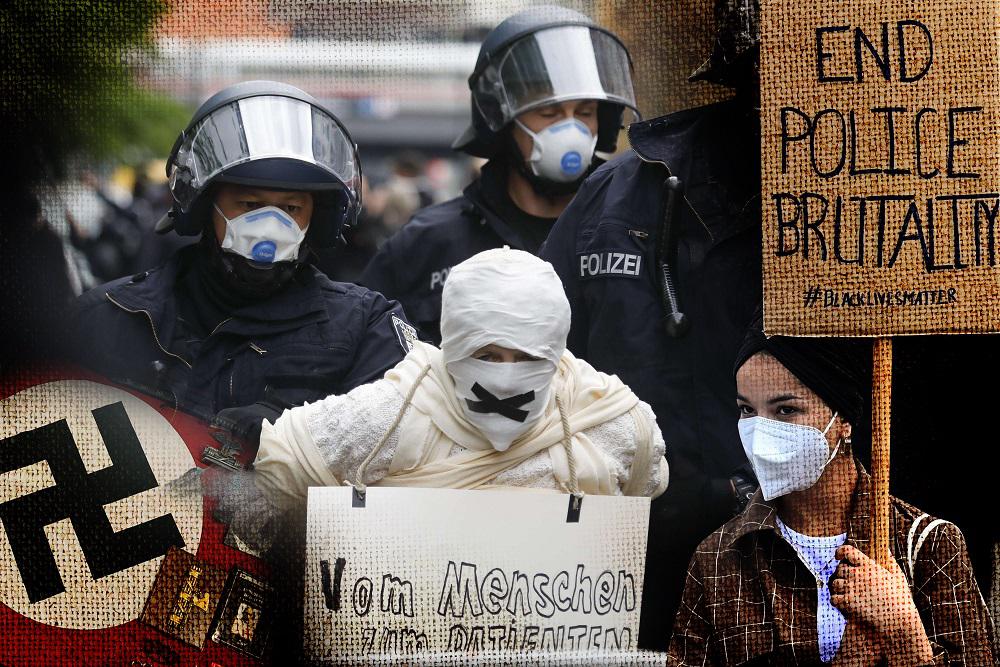
It is noteworthy that the crisis of the far-right's penetration into the ranks of the German army continues to haunt the country's officials, after the MAD counterintelligence unit identified in January 2019 the identities of 500 German soldiers who are under investigation on suspicion of far-right extremism.
MAD also revealed Nazi plans and security breaches within the German army, by performing the Nazi salute and concealing explosives, weapons and ammunition.
A secret report by BfV in May 2019 also showed that groups of the far-right are preparing for civil war scenarios, and are training to carry out bomb attacks.
Following these events, the German government approved on June 03, 2020 a bill accelerating the process of expelling the army and police, who are proven to be involved in extremist crimes, because they threaten the military regime or the army's reputation.
In turn, the German Focus magazine revealed on June 6, 2020, that German neo-Nazi extremists had received military training in a special camp by Russian intelligence near St. Petersburg.
Among the participants in these groups are elements of the youth wing of the National Democratic Party, which is more extreme than the AFD, as well as elements of a far-right party called the Third Way, according to the magazine.
The camps include combat training, learning how to carry and deal with weapons, ammunition, and how to carry out terrorist attacks, after the exercises are over, some will join Russian combat camps in Ukraine to fuel the conflict in the region.
Sources
- German plan to tackle far right could strip 1,500 suspects of gun licences
- German spy agency may surveil far-right AfD party, court rules
- Minorities in Germany fear Putin could mobilise the far-right
- Far-right crime remains high in Germany [Infographic]
- Germany Dissolves Elite Army Unit Over Far-right Activity
- German Neo-Nazis Training At Russian Terrorist Camp [German]


